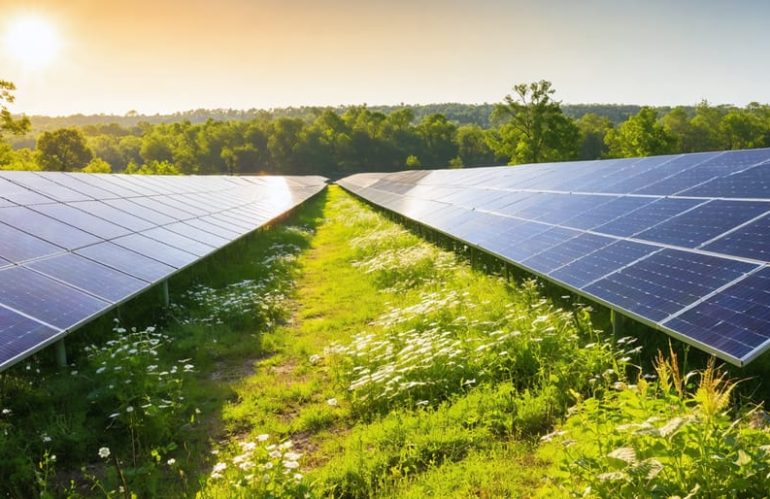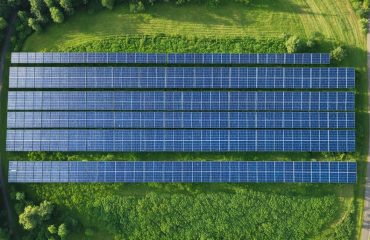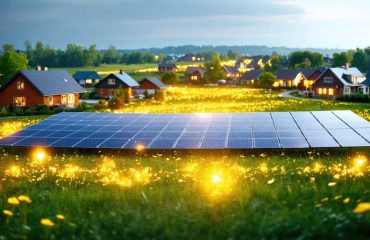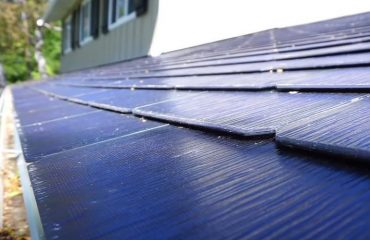Georgia’s community solar programs are revolutionizing how residents access clean, renewable energy without installing panels on their properties. Through these innovative shared solar facilities, homeowners, renters, and businesses can now tap into solar power’s benefits while potentially reducing their monthly electricity costs by 10-15%.
Community solar represents a game-changing solution for the estimated 75% of Georgia residents who can’t install traditional rooftop solar due to shading, roof constraints, or rental status. These centralized solar arrays, strategically located throughout the state, allow participants to subscribe to a portion of the generated power, receiving credits directly on their utility bills.
As Georgia’s energy landscape evolves, community solar projects are expanding rapidly, with multiple utilities now offering programs to meet growing demand. Whether you’re looking to reduce your carbon footprint, stabilize your energy costs, or support local renewable energy development, community solar provides an accessible entry point into the clean energy future – no roof required.
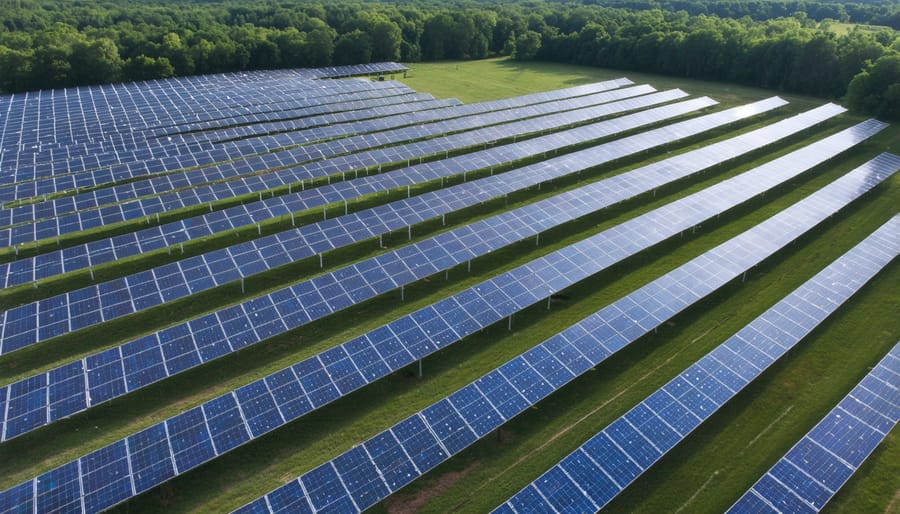
How Georgia Community Solar Works
Subscribe and Save
Georgia’s community solar model offers a straightforward subscription process that makes clean energy accessible to everyone. Participants typically choose a subscription size based on their average electricity consumption, often ranging from 1 kW to 10 kW portions of the solar array.
The billing process is simple and transparent. Subscribers receive two monthly bills: their regular utility bill and a community solar subscription bill. The solar credits earned from your subscription are automatically applied to your utility bill, resulting in immediate savings. Most programs offer flexible payment options, including monthly or annual payment plans, with no upfront costs required.
Subscribers can expect to save between 5-15% on their overall electricity costs, depending on their subscription size and energy usage. Many providers offer pay-as-you-go models with no long-term commitments, while others may require a 12-24 month agreement. The best part? You can transfer or cancel your subscription if you move within your utility’s service area, providing the flexibility modern homeowners need.
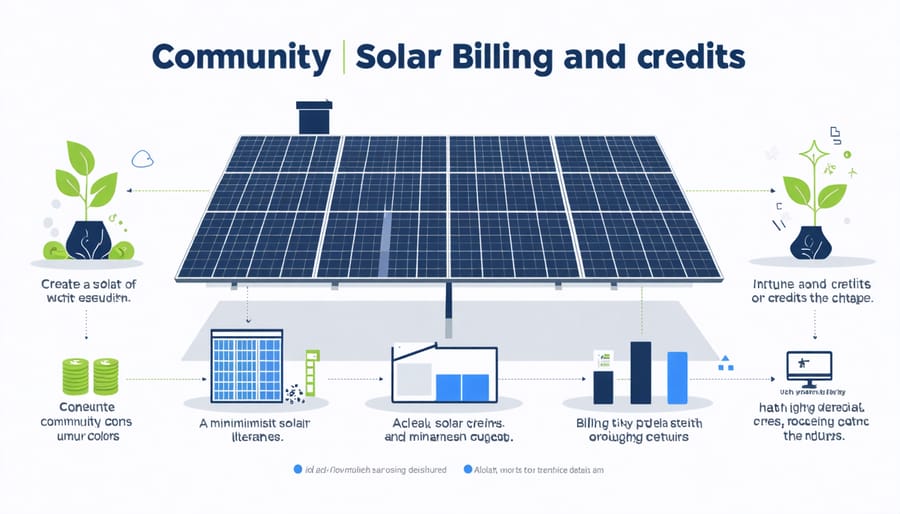
No Installation Required
One of the most appealing aspects of community solar in Georgia is that you don’t need to install any equipment on your property. Unlike traditional rooftop solar panels, community solar allows you to tap into clean energy without worrying about installation costs, maintenance, or whether your roof is suitable for panels.
When you subscribe to a community solar program, you’re essentially buying power from a shared solar farm located elsewhere in your utility’s service area. This means you can benefit from solar energy even if you rent your home, live in an apartment, or have a shaded property. There’s no need for construction crews, building permits, or structural modifications to your home.
The process is remarkably simple: you subscribe to a portion of the community solar project’s output, and the energy generated is credited to your regular utility bill. This arrangement eliminates the usual barriers to solar adoption while still providing the environmental and financial benefits of renewable energy. It’s particularly beneficial for residents who want to support clean energy but face physical or financial constraints with traditional solar installation.
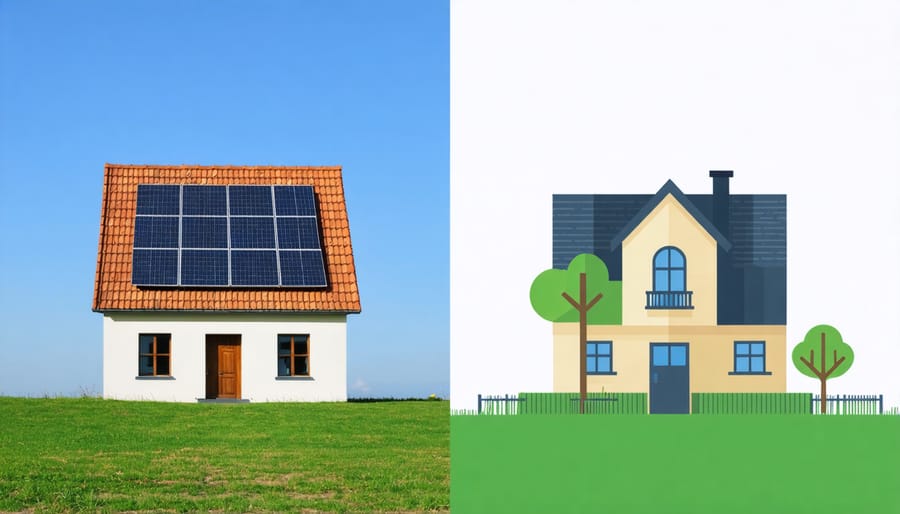
Benefits for Georgia Homeowners
Monthly Energy Savings
Georgia community solar participants typically see significant solar energy savings on their monthly electricity bills. On average, subscribers can expect to reduce their energy costs by 10-15% compared to traditional utility rates. For a household with a monthly electric bill of $150, this could translate to annual savings between $180 and $270.
These savings are realized through a straightforward billing process: participants receive credits on their utility bills based on their share of the community solar garden’s production. The subscription fee is typically lower than the value of these credits, resulting in net monthly savings. For example, if you subscribe to a $100 monthly share that generates $120 worth of credits, you’ll save $20 each month.
What makes community solar particularly attractive is that these savings come without any upfront installation costs or maintenance responsibilities. Unlike rooftop solar installations, there’s no need to worry about equipment repairs or replacement costs. The savings are also predictable and stable, as most community solar agreements lock in rates for 20-25 years, protecting subscribers from rising utility costs.
Additionally, many Georgia community solar programs offer flexible payment options and subscription sizes, allowing participants to choose a plan that best fits their budget and energy needs. Some providers even offer special rates for low-income households, making solar accessibility more equitable.
Environmental Impact
Community solar programs in Georgia deliver significant environmental benefits while making clean energy accessible to more residents. By participating in these programs, households collectively reduce their carbon footprint without installing panels on their own property. A typical community solar garden can offset thousands of tons of carbon dioxide annually – equivalent to taking hundreds of cars off the road.
These solar installations help combat climate change by replacing fossil fuel-generated electricity with clean, renewable energy. They reduce air pollution, including harmful particulates and greenhouse gases that contribute to poor air quality and global warming. The environmental impact extends beyond emissions reduction – community solar projects often transform unused or degraded land into productive green spaces that can support local wildlife and pollinators.
Water conservation is another key benefit, as solar power uses significantly less water than traditional power generation methods. While a conventional power plant requires thousands of gallons of water daily for cooling, solar panels need only occasional cleaning to maintain efficiency.
By joining a community solar program, Georgia residents contribute to a cleaner energy future while preserving local ecosystems. These projects help meet the state’s growing energy needs sustainably, reducing the demand for new fossil fuel infrastructure and protecting natural resources for future generations. The collective impact of community solar participants creates meaningful environmental change at both local and regional levels.
Eligibility and Getting Started
Who Can Participate
Georgia community solar programs are open to a wide range of participants, making solar energy accessible to those who might not otherwise be able to install their own panels. Georgia Power customers who live in eligible service areas can participate, regardless of whether they own or rent their homes. This includes apartment dwellers, condo owners, and those living in homes where rooftop solar isn’t feasible.
To qualify, participants must be residential customers in good standing with their utility company. Some programs have minimum credit score requirements and may ask for a 12-month commitment. Small businesses and non-profit organizations can also join many community solar projects, though specific eligibility criteria may vary by program.
There are no upfront installation costs required, and participants don’t need to modify their property in any way. Income-qualified households may be eligible for additional benefits or priority enrollment in certain programs. Most importantly, subscribers must be served by a participating utility provider and live within the geographic area covered by the community solar project they wish to join.
Enrollment Process
Joining a Georgia community solar project is straightforward and hassle-free. First, check your eligibility by confirming you’re a Georgia Power customer and verifying that your address falls within an eligible service area. Next, research available community solar projects in your region and select one that best fits your needs and budget.
Once you’ve chosen a project, complete the online enrollment form through your selected solar provider. You’ll need to provide basic information including your Georgia Power account number, contact details, and preferred payment method. Most providers will then review your application and credit history.
After approval, you’ll receive a subscription agreement outlining your terms, including the number of solar panels or portion of the project you’re subscribing to and your expected savings. Review and sign the agreement, and set up your monthly payment method.
The final step is simply waiting for your subscription to activate, typically within one to two billing cycles. You’ll start seeing credits on your Georgia Power bill reflecting your share of the solar energy produced.
Available Programs in Georgia
Georgia’s community solar landscape is steadily growing, offering residents new ways to participate in solar energy without installing panels on their property. Currently, several major utilities and organizations are spearheading community solar programs in your state.
Georgia Power, the state’s largest utility provider, operates the Community Solar Program, which allows customers to subscribe to solar energy from their shared solar facilities. Subscribers can purchase blocks of solar energy production, typically in 1-kilowatt increments, and receive credits on their monthly bills based on their subscription level.
Walton EMC’s Cooperative Solar program is another notable initiative, offering members the opportunity to participate in solar energy without upfront costs. Members can subscribe to blocks of solar power from the cooperative’s solar facilities, making clean energy accessible to a broader range of households.
Sawnee EMC provides its members with the Smart Solar program, allowing participants to purchase energy from the cooperative’s solar facilities. This program is particularly appealing for renters and homeowners whose properties aren’t suitable for traditional solar installations.
These programs typically operate on a first-come, first-served basis, and availability may vary depending on your location within Georgia. Monthly subscription costs are generally affordable, ranging from $10 to $25 per block of solar energy. Most programs allow subscribers to cancel their participation without penalties, providing flexibility for participants.
To join these programs, residents usually need to be customers of the participating utility companies and meet basic eligibility requirements. Many providers maintain waiting lists for interested customers when programs reach capacity.
Community solar in Georgia represents a significant opportunity for homeowners to embrace clean energy while enjoying reduced electricity costs. Whether you’re a renter, live in a shaded area, or simply prefer a more flexible solar solution, community solar programs provide an accessible path to sustainable energy. By subscribing to a local solar garden, you can support renewable energy development in your community while potentially saving 5-15% on your monthly electricity bills.
Ready to get started? Contact your local utility provider to learn about available community solar projects in your area. You can also reach out to solar developers operating in Georgia for subscription options. With minimal upfront costs and no installation requirements, community solar offers an innovative way to power your home while contributing to a cleaner, more sustainable future for Georgia.

